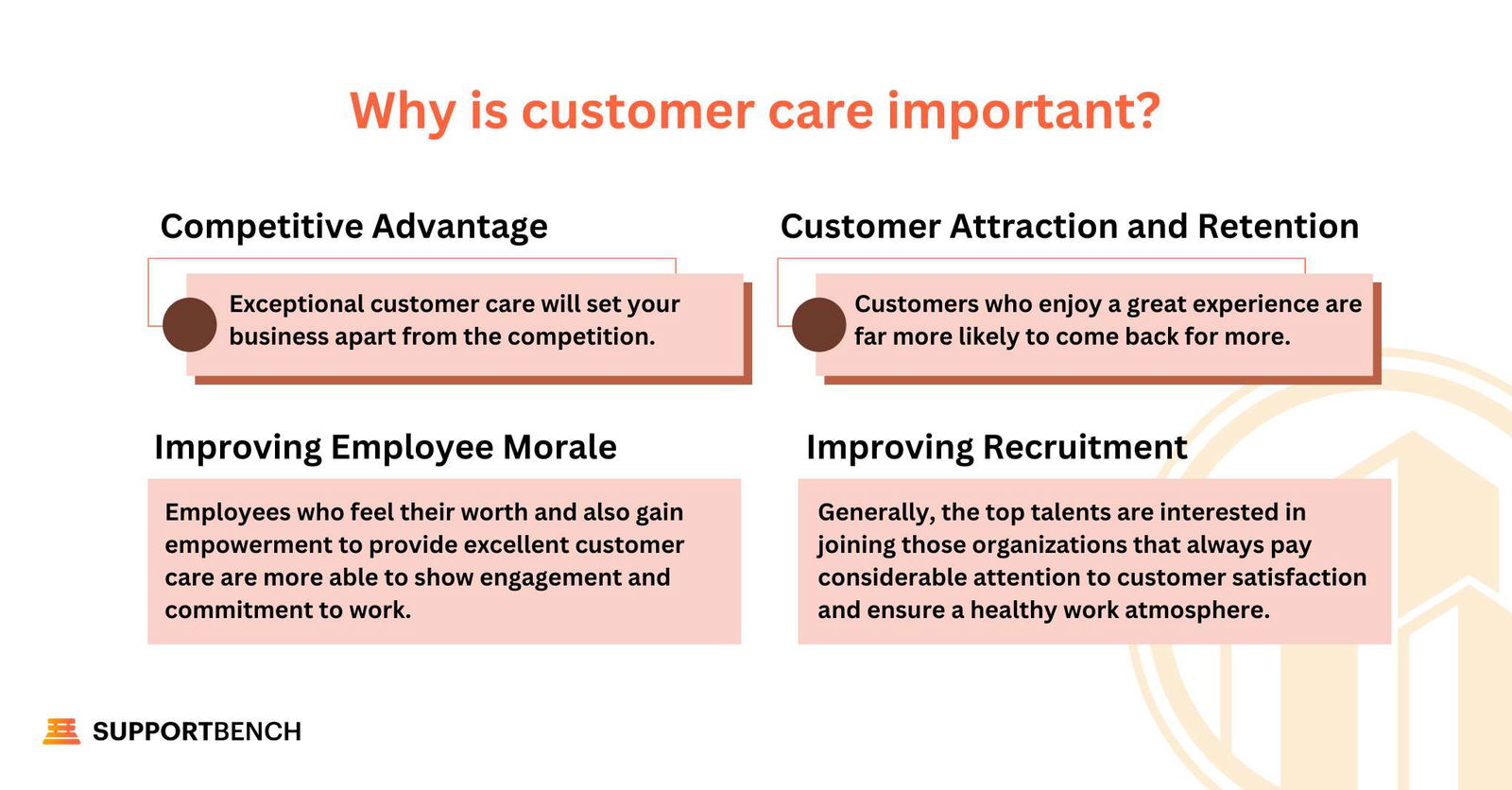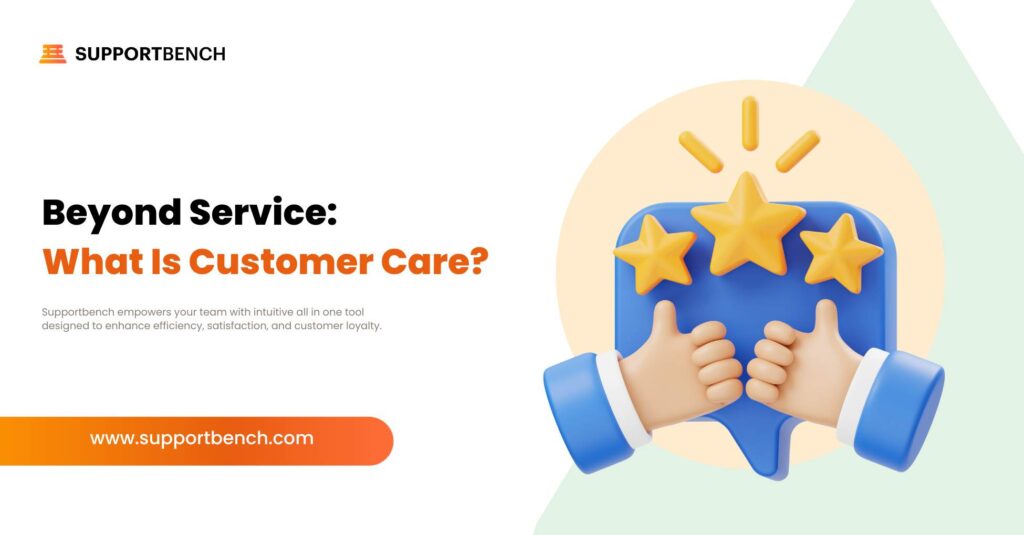Basically, every company in the world should focus on creating outstanding CX. Suppose one does a poor job of keeping customers satisfied and feeling cared for. In that case, customers are unlikely to continue doing business with the company for very long, if at all.
Therefore, poor customer service is a real issue, and it can seriously hurt the bottom line of a company. In fact, a study by Accenture estimated that poor customer service is responsible for $1.6 trillion in lost business in the U.S. annually. In a recent survey, 32 percent of customers said they’d stop doing business with a brand they loved after just one bad experience. You couldn’t afford to lose nearly a third of your customers, can you?
On the other hand, another study has found that 63% of consumers will gladly pay more for a product or service if they believe they’re receiving excellent customer service. That’s right! A majority of consumers would pay more money just to ensure a great customer experience. So, companies not hitting the mark with their CX efforts aren’t only failing at building loyalty and driving retention. They may also be leaving money on the table.
Today, with consumer expectations about CX so exceedingly high, your company needs to provide not just stellar customer service but also top-notch customer care. Not exactly sure what customer care entails? No problem. In this post, we’ll walk you through what it means and why it’s essential.
What is the meaning of customer care?
Customer care is basically the ideology of lush service towards customers along the whole journey of customers with the company. It includes everything all the way from contact initiation to after-sales services.
Customer care is not only about resolving issues or answering queries; instead, it has to do with understanding and even anticipating customer needs, beating expectations, and maintaining relationships in the long run. Some key elements in effective customer care include the following:
- Empathy: This is a competence that involves an understanding and sharing of feelings with the customer.
- Proactivity: Anticipating the needs of the customers and sorting them out before they turn into problems.
- Responsiveness: Timely addressing all queries and issues put forward by the customers.
- Personalization: Customization of experience based on the needs and preferences of the customer.
- Continuous Improvement: Keenness to continually improve and make things right towards the satisfaction of the customer and quality of service.

Is customer care the same as service?
The short answer would be no. It is not just another term for customer service.
The role of customer service is to advise and assist customers with something, be it choosing the right product or dealing with complaints. However, when you provide customer care through your service, you connect with your customers on an emotional level.
Great customer care means you listen to consumers’ needs and understand what they want. You will, most importantly, care about it. The outcome is a long-lasting relationship that serves mutual benefits for both parties; satisfied customers generally behave loyally.
Here is an example that helps understand the whole concept of customer care vs. customer service: A customer buys a dress online. It doesn’t show up on time. The customer calls in to complain. “Sorry about that. Here is a discount for buying a dress in-store.” That is how customer service works. Problem. Solution. Done. Next!
Now, let’s move on to the definition of consumer care.
The same customer arrives at a store on the same day. Stressed. The pushchair doesn’t fit between clothes rails. The baby cries. It is in this context that customer care starts when a shop assistant empathizes with the customer, stops seeing “a customer,” yet notices “a mum,” and understands how important it is for her to look and feel good that evening. The shop assistant invites her into a bigger changing room and takes time to cheer up the baby so that everyone can have the best buying experience possible.
Five years later, this customer was still buying from them, and he remembered to write about this experience in an article about customer care.
Why is customer care important?
Customer care is a vital ingredient in any successful business. The effective application of customer care can provide a real competitive edge, bring in and retain customers; it can even pay dividends in the field of recruitment.
Competitive Advantage
Exceptional customer care will set your business apart from the competition. Many businesses provide good customer service, but customer care goes beyond simply fixing a problem. It involves understanding and anticipating customer needs, exceeding their expectations, and fostering a long-term relationship. Customers who experience this level of care will choose your business instead of your competitors.
Customer Attraction and Retention
A satisfied customer will now be more willing to let others know about the excellent experience. More referrals and new business are thus expected to follow. Customers who enjoy a great experience are far more likely to come back for more. This will not only bring in more revenue, but it will also create a loyal customer base in due course.
Improving Employee Morale
Being involved in the process of delighting customers and creating an experience above and beyond their expectations tends to impact employees positively. It enhances job satisfaction, motivates, and raises productivity. Employees who feel their worth and also gain empowerment to provide excellent customer care are more able to show engagement and commitment to work.
Improving Recruitment
Besides this, a company known for its superior customer care tends to appear more viable to the job candidates. Generally, the top talents are interested in joining those organizations that always pay considerable attention to customer satisfaction and ensure a healthy work atmosphere. Job seekers often want to work for companies that value both their customers and their employees, as it suggests a positive and supportive work environment.

8 Essential Tips for Premium Customer Care
Following are eight areas on which a business should focus to provide excellent customer care.
- Company Culture: A company culture should be built that prioritizes customer satisfaction and empowers employees to deliver excellent service.
- Customer Journey Mapping: A company must understand each stage of the customer’s experience—from initial contact to post-purchase follow-up—to identify areas for improvement.
- Anticipating Needs: Anticipate the needs of the customers and try to solve them before they become problems.
- Loyalty Rewards: Reward repeat customers through loyalty initiatives with special privileges.
- Feedback Collection: Periodically collect customer feedback and take corrective measures to address the same based on their suggestions.
- Personalization: Make customer interactions personalized in relation to their preferences and requirements.
- Going the Extra Mile: Come up with genuine gestures through which one can be able to astonish and amaze customers.
- Empathy and Active Listening: Instill the virtues of empathy and active listening amongst team members to earn the trust and understanding of customers.

Crucial Skills for Excelling in Customer Service
Your customer service team is a great starting point, but delivering quality service requires effort and collaboration from everyone in the organization. It’s essential to hire people who genuinely care about the success of your clients.
These individuals thrive on one-on-one interactions, are natural problem solvers, warm and friendly, and have the ability to explain things clearly to others.
Each leader should look for these customer service skills in recruits, and each support worker should develop them.
Empathy
Empathy is all about understanding another person’s feelings and perspective. Delivering a good customer experience means listening to customers, interpreting their signs and figuring out what they want.
Approximately 50% of customers would like service from an empathetic customer care representative, which is especially relevant in phone support.
Support leaders can provide empathy training to their teams. It’s also wise to hire customer service agents who understand how an angry customer feels and can effectively communicate with them.
In situations that require empathy, employers might consider allowing flexibility in certain policies to better accommodate customer needs.
Empathy can be exemplified by assisting customers with decision-making and offering flexible refund options.
Problem-solving
Problem-solving skills are vital in customer service. When a client has an issue, an employee must identify the cause of the problem and the resolution method of that issue. You want to show patience and respect while discussing the issue as you move forward with solving the problem at hand. You should have enough technical know-how to guide the client in overcoming the issue and avoiding it in the future.
For example, if a customer is unable to reset their password via live chat, an agent can assist by manually resetting the password and then guiding the customer through the steps to reset it independently in the future.
Effectiveness
Support professionals must be efficient in today’s fast-moving world. Efficiency means multitasking, prioritizing, and managing resources. Companies should also ensure that support agents are equipped with the tools and resources to work efficiently, such as assigning cases to the most qualified staff, allowing sales representatives to focus specifically on issues they are equipped to resolve.
Active listening
Every conversation requires both a speaker and a listener. The initial step toward the solution is to listen to a customer’s queries and worries and respond in a manner that makes the person feel listened to. Active listening requires asking questions for clarity, paraphrasing information, and responding using verbal cues such as “mmm.”
Clear communication skills
Your customer service team is the front line in resolving product-related issues, acting as both the voice of your business and an advocate for your clients.
They will represent your business to your clients. As such, they must be adept at condensing complex ideas into palatable, understandable language.
Additionally, they will speak on your business’s behalf regarding your client’s needs and feelings.
Working with customers requires communicating clearly, as misunderstandings will result in anger and disappointment. The best customer service professionals understand how to explain things to customers in a manner that does not leave any gray area and keeps their communications with customers simple.
Flexibility
Customers expect to reach a business through multiple channels. Their medium of communication may shift depending on the circumstances. This means, in turn, that your customer support should be flexible, too. Sometimes, the same customer would contact a company through several channels. Multi-channel queries can be smoothed out by integrating information about customers with a customer relationship management system. Being empathetic towards your customers for their diverse backgrounds and character can go a long way.
Resourcefulness
Resourcefulness helps a lot in fixing problems. You will be able to create numerous efficient way-outs, requiring less time with each client and being able to attend to more clients in a single day. That also involves knowing the many divisions of a company and where, if need be, you can recommend clients. An important skill that can be developed in the workplace is the ability to find innovative solutions to problems.
Technical Expertise
The customer service professional should have both technical and industrial knowledge, which will assist the clients in making appropriate decisions and prevent problems from arising. The process of buying and using the product or service, the corporate policy, and all the specifications of the products need to be up-to-date for the agents. This also helps when upselling a product or service since you can list the features of an upgraded version.
Positive attitude
Maintaining a positive attitude in customer support can be challenging when customers are dissatisfied with your product or service. The general recommendation, however, is to remain calm and try to meet the client where they are so that you might understand the reasons behind their agitation. Pushing customers away with a negative attitude can harm the company’s image, potentially leading to a damaged reputation and decreased sales.
Having patience
Patience is essential when dealing with frustrated, angry, or upset customers. With all the star rating systems on Google Maps, Yelp, or Glassdoor that your business may appear on, an argument with a customer could affect how your brand is perceived. Consciously showing empathy will allow you to give your customers a positive experience. Instead of worsening an awful circumstance, your behavior and demeanor should actually make someone feel better.
Key Takeaways for Mastering Customer Service:
- Active Listening: reflects the ability to pay full attention to the speaker, understand the message, and act on it accordingly.
- Empathy: The capability to see the world from another person’s point of view and to share in their feelings.
- Problem Solving: The art of identifying and resolving problems successfully.
- Communication Skills: The ability to convey information clearly and concisely in both verbal and written forms.
- Patience: The ability to remain calm and composed without irritation in challenging or frustrating situations.

Measuring the Success of Customer Care
In order to truly know if your customer care is serving its intended purpose, you need to know why customers are choosing your product, staying with it, and how likely they are to defect to competitors.
Key Metrics to Track
- Customer Satisfaction (CSAT): A measure of how satisfied customers are with your products, services, and support, typically assessed through post-interaction surveys.
- Customer Effort Score (CES): This is a rating on how easy it is for customers to interact with your company to have their issues resolved.
- Net Promoter Score (NPS): It determines the loyalty of your customers and their likelihood to recommend your brand to others.
- Customer Churn Rate: The percentage of customers who stop doing business with you over a given period.
- Repeat Purchase Rate: The frequency with which customers make repeat purchases from your business.
- Customer Lifetime Value (CLTV): The total revenue a business can expect to earn from a customer throughout their entire relationship with the company.
- Customer Feedback Analysis: Open-ended questions can be used in surveys for qualitative responses on customer experiences and help in finding areas for improvement.
- Social Media Monitoring: Monitor your brand mentions on social media to identify the sentiment of customers and accordingly take action on issues raised.
- Customer Support Analysis: Analyze customer support conversations for common issues, trends, and areas of improvement.












